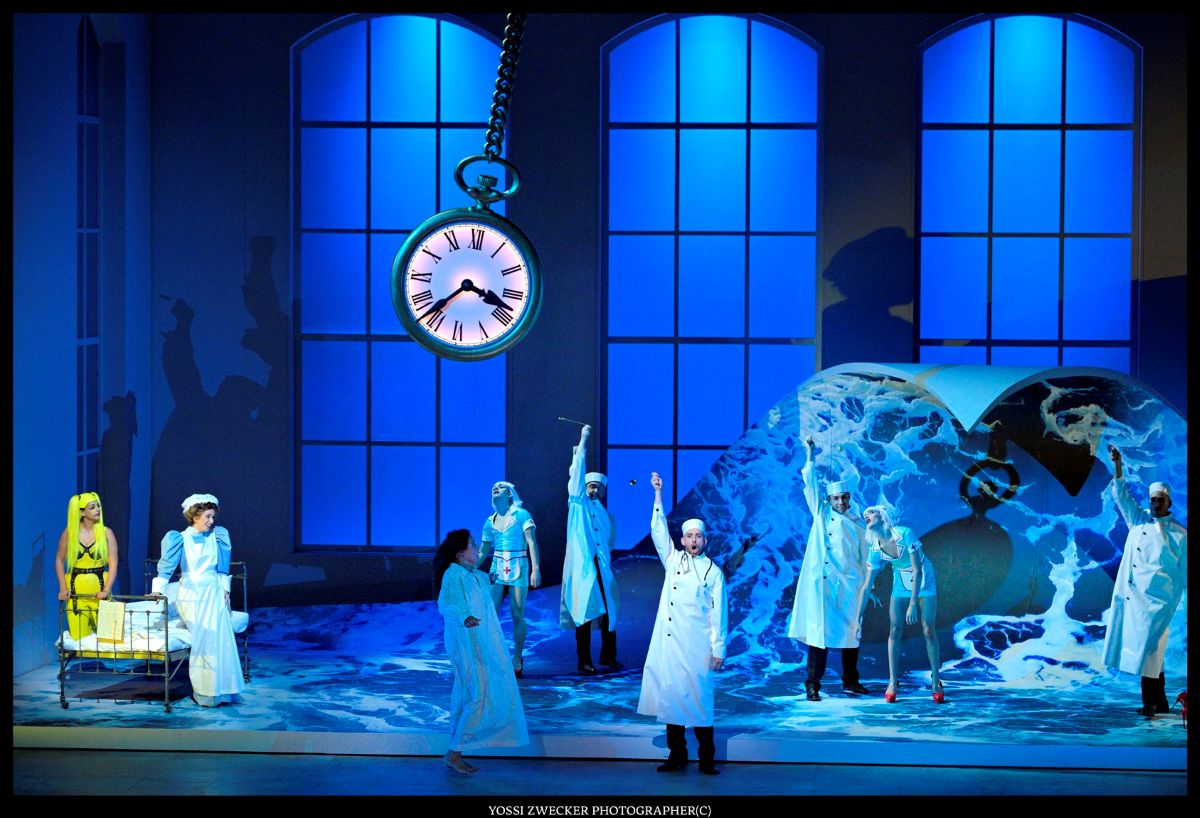Richard Strauss’s 1912 opera is an exceptionally unconventional work of musical theatre, posing a considerable challenge for any director. It can be described as a fusion of three operas in two acts. In fact, it was composed in stages over four years, which accounts for its unusual structure.
The prologue is set in the home of Vienna’s wealthiest man, who has invited two musical troupes to perform: a burlesque ensemble and an opera company preparing to present a new opera seria — a mythological tale about Ariadne, who is left heartbroken after being abandoned by her lover, Theseus, on the island of Naxos.
Tension arises even before the performance begins, as the young Composer is asked to shorten his opera and clashes with Zerbinetta, the spirited leader of the burlesque troupe. Matters escalate when the butler informs them that both groups are to perform simultaneously.
The second act is the actual performance of the opera titled Ariadne auf Naxos, which is soon disrupted by the five comedians from the burlesque group, who somehow find their way to the island. While Ariadne remains steadfast in her devotion to a single love, the flirtatious Zerbinetta insists that “the more men, the merrier.” What begins as a tragic opera quickly morphs into comedy, then continues to shift between the two genres, all while maintaining a self-aware, theatrical tone that keeps the audience conscious of the performance’s constructed nature.
Fortunately, director Ido Ricklin and his cast found just the right tone to bring this intricate blend together, resulting in a thoroughly enjoyable evening at the opera. That said, I must begin with one criticism: the lavish set for the prologue features a grand staircase running from the back to the front of the stage, symbolically dividing tragedy on the left from comedy on the right. It’s a clever concept, but the set is designed in such a way that only those seated in the centre can fully appreciate the effect — particularly the view of the chandelier hanging from the ceiling above the stairs — leaving much of the audience unable to experience the full visual impact.
The set for the second act is symbolic: a large painted wave dominates the centre of a stark white room with tall windows, evoking a sanatorium where Ariadne is treated by nurses. This setting actually makes more sense than the traditional deserted island — it feels more plausible for a troupe of entertainers to arrive there. Still, the humour of the collision between the tragic and the comic stories remains intact, helped along by the vibrant, camp costumes.
In the premiere performance, Israeli mezzo-soprano Rachel Frenkel gave a strong and engaging portrayal of the frustrated Composer, torn between artistic integrity and compromise. She was both poignant and humorous, delivering the role with expressive singing and emotional depth.
Danish soprano Ann Petersen was convincing in the first act as the temperamental diva, but it was in the second act — when she transformed into the heartbroken Ariadne — that she truly shone. Her rich soprano and nuanced acting brought out the character’s despair and longing beautifully.
Israeli soprano Hila Fahima had the flashier role of Zerbinetta. Though her voice initially sounded a little flat at the start of the evening, she quickly found her stride. As the vocal lines climbed, her voice blossomed into vibrant coloratura, and she stole the spotlight with remarkable ease.
Though the opera has no chorus, it features a sublime trio of nymphs — here portrayed as nurses. Israeli sopranos Yael Levita, Shay Bloch, and Shaked Strul sang with an ethereal blend, sounding truly angelic.
Among the male cast — too numerous to name individually — American tenor Bryan Register stood out as Bacchus. Though he spent much of the opera waiting in the wings, his eventual entrance was worth it, as he delivered a soaring, powerful performance that gave Ariadne a renewed zest for life. Israeli baritone Oded Reich also left a strong impression as the charismatic Harlequin.
Conductor Asher Fisch led the orchestra with confident precision, drawing out every nuance and colour from Strauss’s complex score. All in all, this was one of the most enjoyable evenings I’ve had at the Israeli Opera in quite some time. Co-produced with the Kraków Opera and Oper Dortmund, this lovely and lively production is set to be staged next in the Polish city.
The Israeli Opera Tel-Aviv-Yafo האופרה הישראלית תל-אביב-יפו
Opera
Music by Richard Strauss
Director: Ido Ricklin
Set Designer: Simon Lima Holdsworth
Costume Designer: Oran Dar
Conductor: Asher Fisch
Sung in German with Hebrew and English surtitles
Cast includes Hila Fahima, Ann Petersen, Rachel Frenkel, Oded Reich, Yael Levita, Bryan Register, Shay Bloch, Ionut Pascu
Running time: 2 hours and 20 minutes including intermission
Yael Shuv

